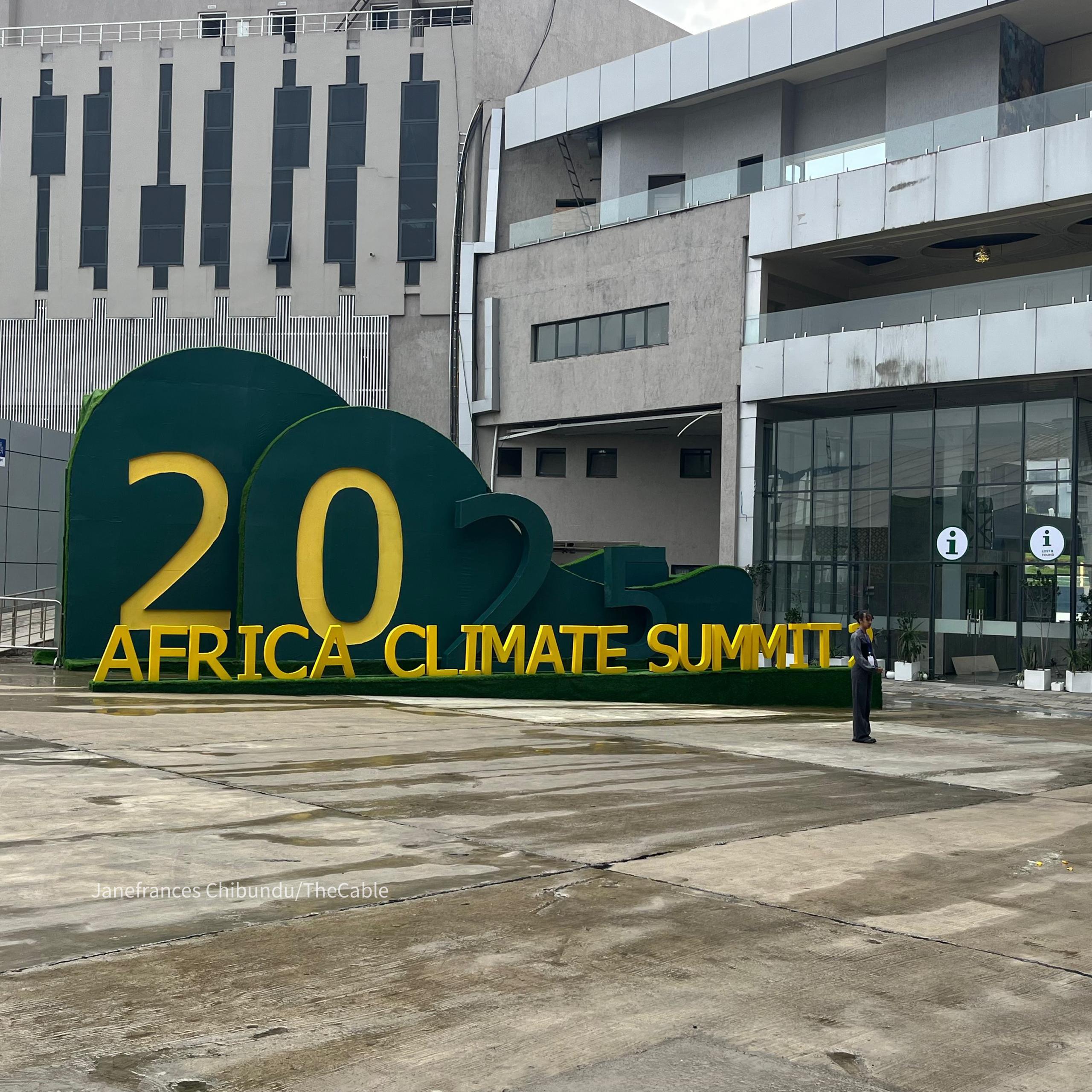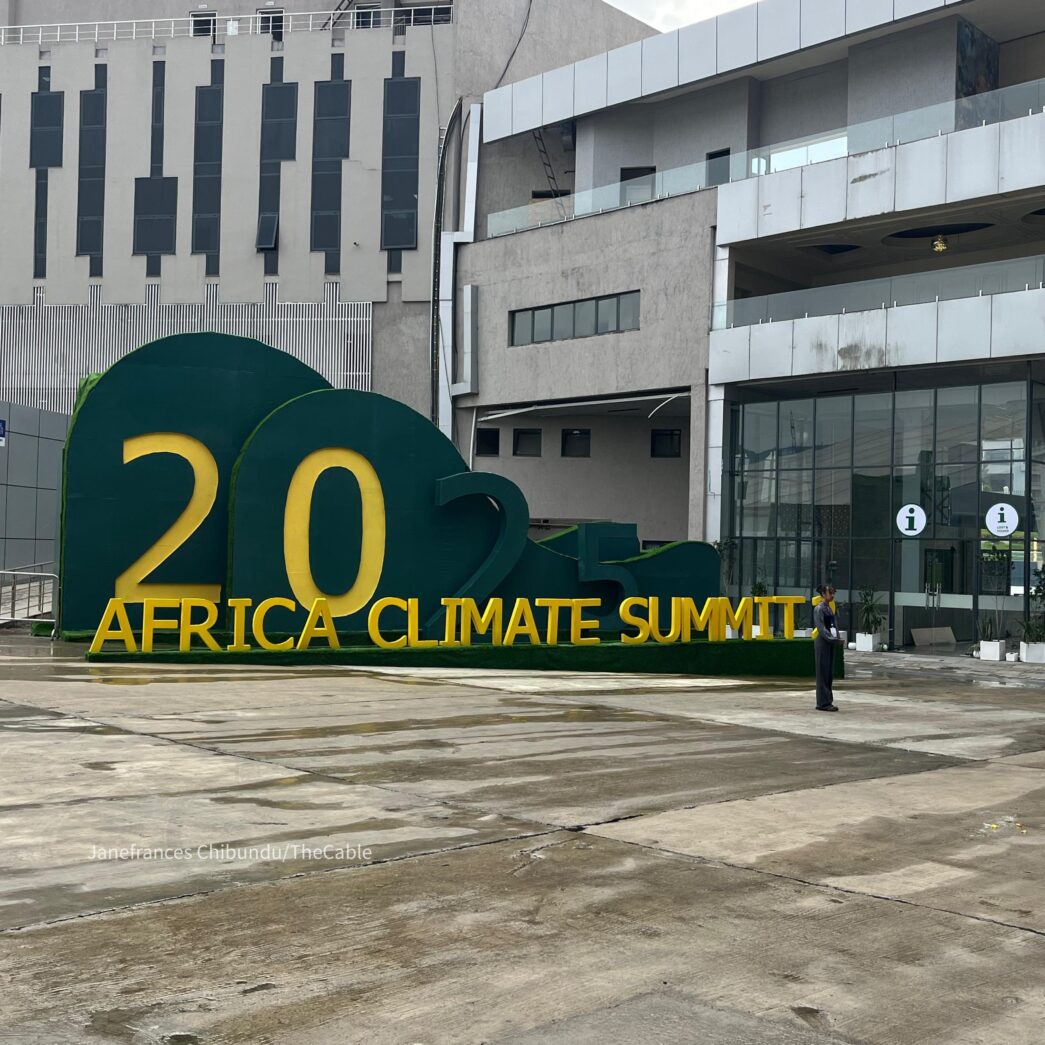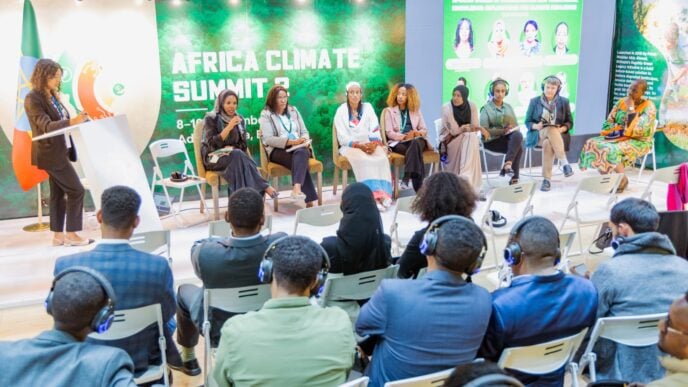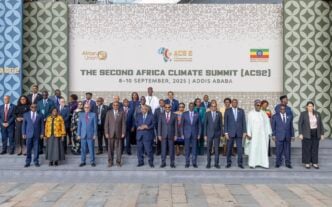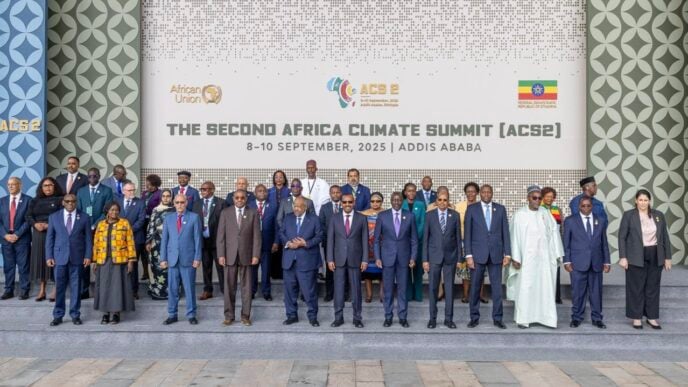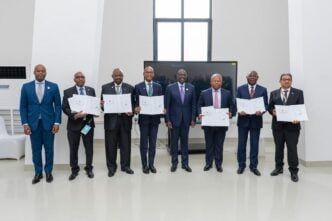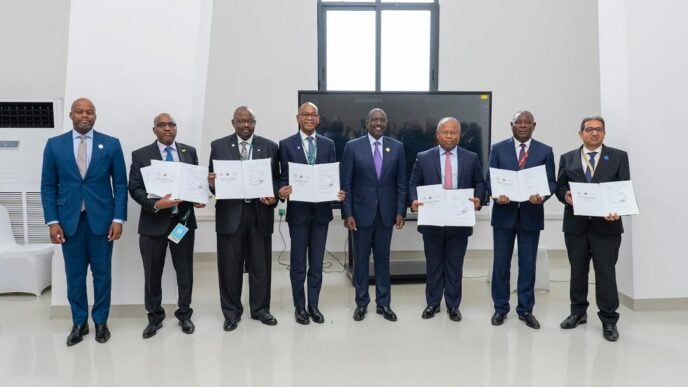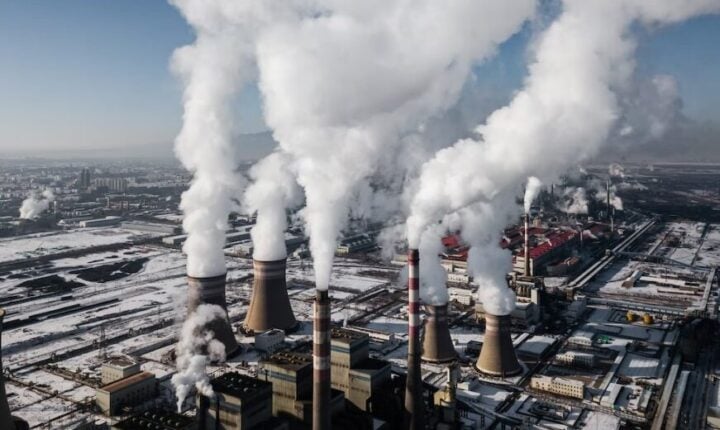
President Bola Tinubu has reaffirmed Nigeria’s commitment to achieving net-zero emissions by 2060.
Net-zero emissions refers to a balance between the greenhouse gases emitted into the atmosphere and those taken out.
In 2021, at the COP26 climate summit in Glasgow, former President Muhammadu Buhari announced that Nigeria would aim for net-zero emissions by 2060.
Advertisement
Tinubu’s remarks were delivered on Monday at the opening of the second Africa Climate Summit (ACS2) in Addis Ababa, Ethiopia.
The president, who was represented by Faruk Yusuf, permanent secretary for solid minerals development and head of the Nigerian delegation, said the country is pursuing a “just and rapid transition to a low-carbon economy”.
“In renewed determination, the Federal Government of Nigeria has made a clear pathway to net-zero by year 2060, aligned with a just transition that safeguards jobs and industrial capacity,” Tinubu said.
Advertisement
“We have approved the Climate Change Act, 2021; as well as developed an all-society andeconomy-wide NDC 3.0, 2025 with a clear roadmap for annual public reporting.”
‘NIGERIA ACCELERATING SOLAR, WIND PROJECTS’
The president noted that Nigeria is advancing pilot projects on green and blue hydrogen, along with utility-scale storage systems, to strengthen grid reliability.
Tinubu said Nigeria is accelerating gas-to-power, solar, and wind projects as part of efforts to expand energy access while cutting emissions under its Mission 300 agenda.
Advertisement
About 70 percent of Nigerians lack access to clean cooking fuels, with millions still relying on firewood and charcoal, according to the World Bank.
Though gas is touted as a transition fuel, Nigeria’s enormous solar potential remains largely undeveloped.
Tinubu noted that the country is embarking on a nationwide rollout of clean cookstoves and LPG cylinders, targeting a 60 percent reduction in household air pollution by 2030.
On financing, the president said Nigeria will mobilise significant climate funds over the next five years, with at least 40 percent channelled to adaptation and resilience for vulnerable communities.
Advertisement
He noted that the country will rely on blended finance, green bonds, guarantees, and carbon markets to attract private investment and de-risk projects.
Tinubu also announced plans to scale up climate-smart agriculture to reach millions of smallholder farmers, alongside measures to expand flood-control systems and resilient housing.
Advertisement
Tinubu urged fellow African leaders to support regional power pooling, broaden access to technology, and commit to rapid project rollouts in line with the African Union’s Agenda 2063.
“Climate ambition must translate into concrete, scalable and impactful action,” the president added.
Advertisement
NIGERIA TO SUBMIT NEW NDC BY SEPTEMBER
Omotenioye Majekodun, director-general of the National Council on Climate Change (NCCC), said Nigeria is on track to meet its international climate targets.
Advertisement
Majekodun noted that Nigeria’s NDC 3.0 has already been validated and will be finalised before the September 22 UN deadline.
She added that programmes like the Beyond Oil and Gas Initiative aimed at phasing out fossil fuel would make Nigeria’s transition to clean energy smoother, but emphasised the need for tailored approaches across African countries given their different energy needs.
“With renewables, each country has its peculiarities. Tailored programmes are the best way to ensure no one is left behind,” she said.
The DG added that one of her priorities is ensuring subnationals can access climate finance to improve Nigeria’s economy.
She revealed that a toolkit for subnationals has been designed to help states unlock funding opportunities, overcome bottlenecks, and align with international commitments.
“Our vision is to create win-win initiatives that drive economic growth while keeping Nigeria on track with its climate goals,” she said.
